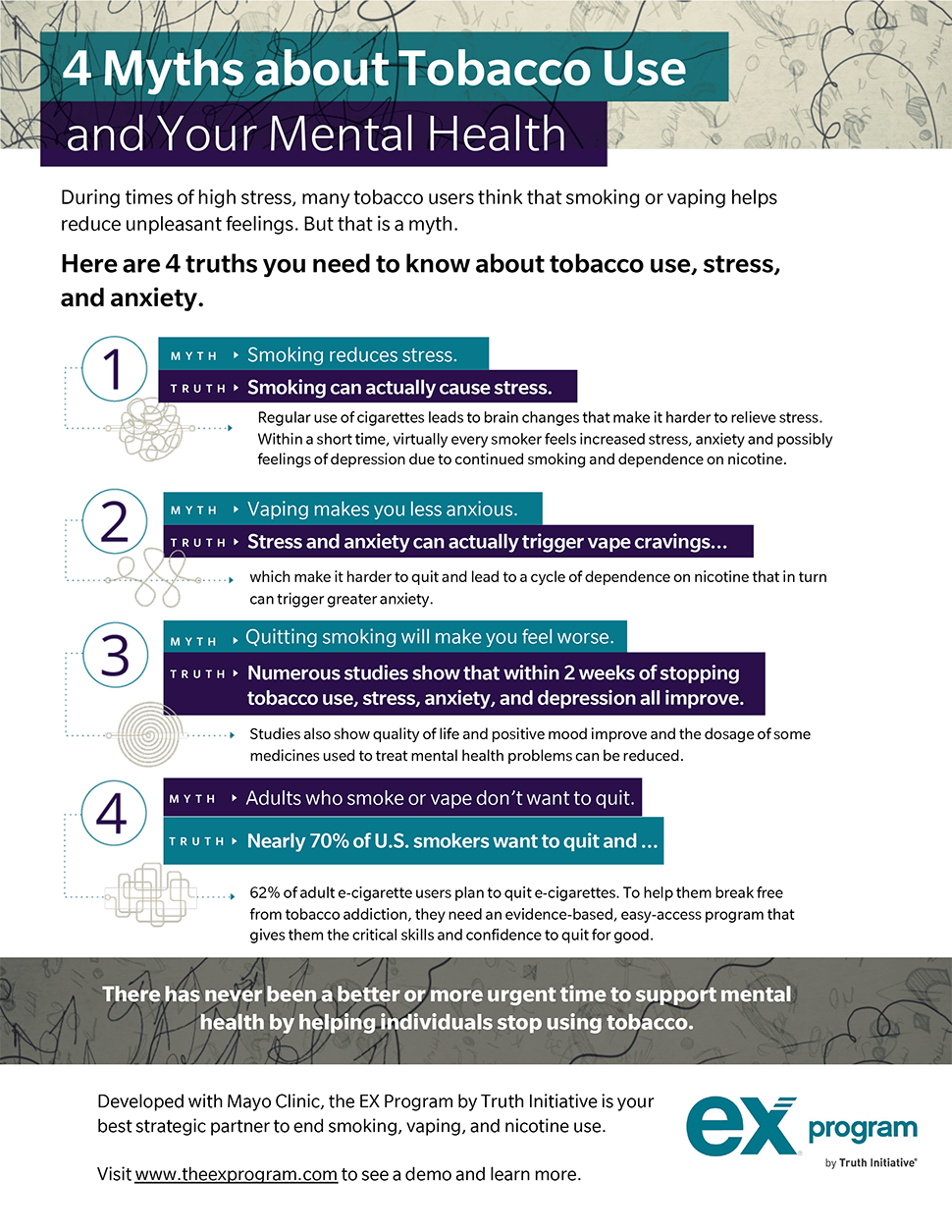The need for mental health support remains a top priority for employers (and health plans that serve employers) in 2024.
Job-related stress, depression/anxiety, and financial stress are top reasons cited for behavioral health issues affecting the workplace.
As a means to cope, some individuals use substances such as nicotine.
Who still smokes anyway?
Depending on what part of the country you live in or the industry you work in, you may be wondering: Who really smokes anymore anyway? Smoke-free laws and restrictive smoking policies have quite literally pushed tobacco users into the back alley, out of sight for many of us.
But about 47 million Americans—that’s 19% of adults 18 and older—still use some form of tobacco. Cigarettes remain the most common tobacco product; however, e-cigarette use is climbing among young adults.
Here are 4 myths and truths about vaping, smoking and mental health that may surprise you.
How to help more tobacco users quit
The EX Program helps tobacco users build resilience through live chat coaching with expert quit-tobacco specialists. Participants also gain 24/7 peer support from our active online EX Community, personalized texts and emails, up to 8 weeks of quit medication delivered right to their home, and more.
Schedule a time today to connect with one of our experts to know how you can offer a proven, quit-tobacco program that helps people live lives free from smoking, vaping, and nicotine.
See more about the impact of tobacco use on mental health in our blog Care About Employee Mental Health? This Matters Too. Need more reasons to focus on tobacco use in your population? See Why Tobacco Cessation Programs Need to Stay in Your Benefits Mix.





